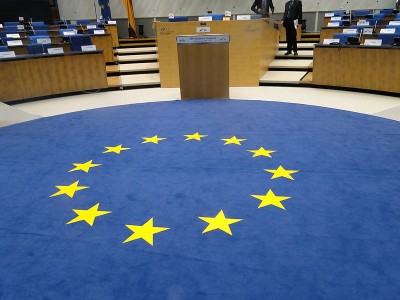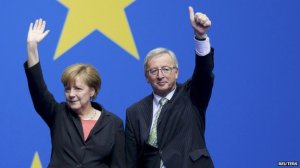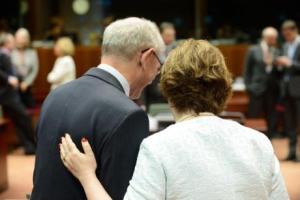
Summer 2014 was far from peaceful with its wide variety of crises from the European inabilities to select the High Representative, President and Chairman of the Eurogroup, to the continuous and vicious rise of ISIS in Iraq, the war in the Middle East between Israel and Hamas, the continuous chess-game between Russia and the West over Ukraine, the targeting of a Malaysian flight over Ukraine by pro-Russian militiamen, the increase of European sanctions against Russia, the Russian imports bans on EU food products, all this under the complex and dire economic slowdown of European economies. So yes, Summer 2014 was a good one for analysts and a long one for civil servants (listen here to a chronicle, in french, about Western leaders’ vacations).
This succession of events underscores a clear regional shift occurring in Europe and the Arab world. The EU and its Member States have had serious challenges in shaping events in their neighborhoods (see here a recent post on this issue). One reason behind this European inability seats in the complex domestic problems/tensions/issues within the Union. The EU has become so complex with a large number of Member States that it does require a clear leadership. Unfortunately, the original powers – France and Britain – are for different causes trying to remain powerful and influential, when their credibilities are being  undermined by their behaviors and domestic contexts. Britain is soul-searching about its European future, while France is unable to address its structural problems and its popular dislike of the EU. Germany is otherwise leading Europe by default. With this complex power-shift and power-searching among the Big three – Berlin, London and Paris – the European ship seems in search of a new direction. One of the most obvious examples was the inabilities to appoint a new President of the European Council and High-Representative back in June. Postponing the appointments has sent the wrong message to Europeans and the world, as well as affecting Europe’s credibility as a global power.
undermined by their behaviors and domestic contexts. Britain is soul-searching about its European future, while France is unable to address its structural problems and its popular dislike of the EU. Germany is otherwise leading Europe by default. With this complex power-shift and power-searching among the Big three – Berlin, London and Paris – the European ship seems in search of a new direction. One of the most obvious examples was the inabilities to appoint a new President of the European Council and High-Representative back in June. Postponing the appointments has sent the wrong message to Europeans and the world, as well as affecting Europe’s credibility as a global power.
This end of the summer and early Fall 2014 are important for the EU as some of the most pressing issues will be addressed. European leaders ought to finally agree on the top jobs. Aside from European politics, NATO will be meeting for its traditional high-level summit, and Scotland’s future within the United Kingdom will be decided. A Scottish independence from the UK could open the Pandora’s box of regional independence and European membership. Here are some important dates to remember for this end of summer and early autumn (based on the original list published by European Voice):
- 26 August: Summit on Ukraine in Belarus. Scheduled to attend are Petro Poroshenko, Ukraine’s president, Vladimir Putin, Russia’s president, and three members of the Commission
- 30 August: Summit to name next representative for foreign affairs and security policy,

Credit: European Council president of the European Council, and president of the Eurogroup
- 31 August: Jean-Claude Juncker expected to announce composition of college of European commissioners and distribution of portfolios
- 3 September: Deadline for MEPs to submit questions for nominated European commissioners ahead of confirmation hearings
- 4-5 September: NATO summit in Wales
- Second half of September: Confirmation hearings for nominees for next college of European commissioners begin
- 14 September: Swedish general election
- 18 September: Referendum on Scottish independence
- 4 October: Latvian parliamentary election
- 5 October: Bulgarian parliamentary election